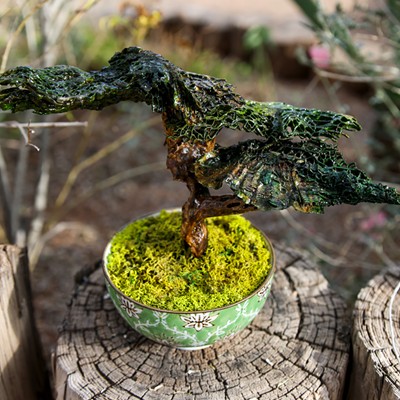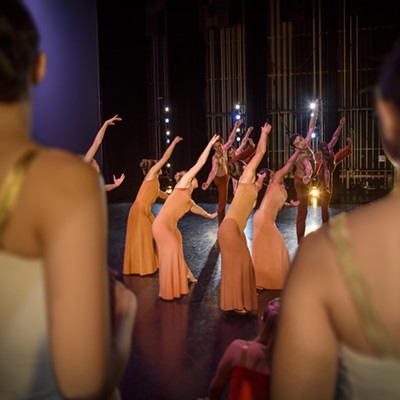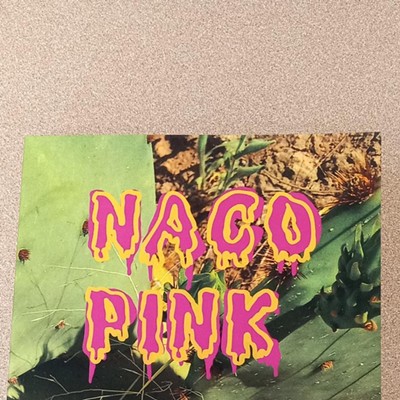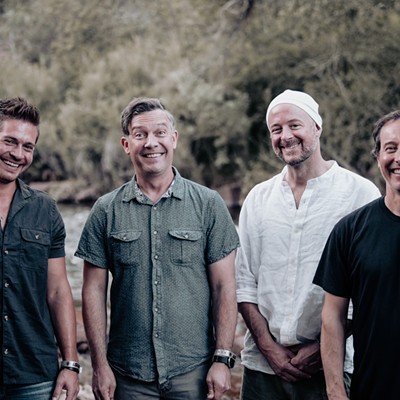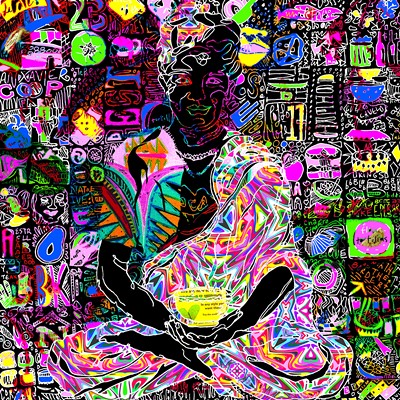They come in all shapes and sizes—ages, too. Some seem pretty comfortable and others, a bit nervous. They've all come voluntarily and with purpose. They leave, having bravely shared a bit of themselves, to friends and strangers.
These are the participants of Female Storytellers, or FST! (pronounced "fist.") Since 2012, there have been 42 shows and 81 different storytellers, according to Bethany Evans, a member of the board of directors and veteran storyteller herself. The group does a presentation every month, the first or second Wednesday.
The seemingly ubiquitous Maryann Green—a drama teacher at Rincon/University High School, a participant in the Tucson Fringe Festival and the new director of Etcetera (Live Theatre Workshop's ever-evolving experimental adjunct to their main stage productions)—has also worked with the FST! group, both as storyteller and general volunteer.
The first time she participated, she says, she was "terrified. "I was going to throw up," she says, but she didn't. What she did feel was a sense of kinship and of pride.
"It was like, people got it, and appreciated it. People recognize themselves in others' stories. No matter how unique and personal it is, someone always comes up and says, 'thanks for telling my story,'" Green says.
She's a veteran now. "There's something so true, so raw, so real in this experience," she says. "The stories are poignant, so human." Although there is always a touching authenticity in the stories told, they can also be very funny.
FST! was the brainchild of Lauren Wiggins, according to Evans who has been with the group since the spring of 2013. Wiggins has since moved away from Tucson, but there have been plenty of enthusiastic participants contributing to a momentum that has kept the group going.
"The idea is to create a safe place for women to share the experiences of their lives," Evans says. But the audience is not at all an overwhelmingly female one. The events draw a good size audience of around 75 to 100 normally, and once they did have a "Man Up" night, where the storytellers were all men. But that was just a one-time thing.
"Yeah, guys have said to me, 'Why do you keep this a women-only event?'" And I say, 'Duh, the world.' In our culture women have not been really encouraged to speak out, to have a voice," Evans says. "This is exactly what FST! does. We carve out a safe space just for women."
Mel Madden is the chair of the storytelling committee. Her introduction to FST! began with a conversation with a man in a bar.
"Yeah, really," she assures me. "He said, 'You're a writer and feminist. You should check out Female Storytellers.'" So she did in May of 2013, and she was impressed. As one who holds an MFA in creative writing from the UA, she is no stranger to telling stories. Her focus is literary non-fiction, so FST! seemed a natural fit. In August of that year she had her initiation.
The prompt for that event was "Shameless." Although storytellers are encouraged not to read their stories, Madden was so nervous that she did. She is now "more comfortable speaking extemporaneously."
After that first "Shameless" performance, Madden felt "empowered." What FST! tries to do, she says, is to "provide a place for stories that don't get told."
Each event has a prompt or theme, which is the starting point for participants. The prompts are chosen for a six-month period by the committee—a loosely structured group. They consider subjects they come up with, as well as suggestions from others. There's no particular agenda or overarching purpose except to choose a theme that can spark women to want to consider sharing their personal stories relating to the prompt.
Then submissions of possible stories are taken, via their website, and four to seven are chosen to represent a given month's prompt, keeping in mind, Evans says, that there should be a cohesive shape for the evening's event. They look for stories, says Madden, "with honesty and a sense of lightness," as well as a degree of "insightfulness." Stories usually run 10 to 15 minutes.
A few days before the show, there's a rehearsal at which the content of each story is reviewed and feedback is given, so that the storytellers have a chance to clarify their piece and to feel supported in undertaking what is really a very vulnerable experience.
Then it's time. There is a host for each evening—Green will be hosting the next event on July 13—to assist with the evening's unfolding. Green says that a host helps guide what is usually an emotional journey.
"I don't mean to suggest that every evening is a sob-fest," Green says. What does stand out for her is that this is not just about sharing stories, but that "these are shared stories, and it becomes a celebration of community, what we all have in common."
No small part of FST is their philanthropy. They distribute their ticket proceeds to various charitable groups, which have included SAAF, Ben's Bells and the Community Food Bank. They try to stick to smaller local groups, Evans says, and particularly those that would have a strong connection with women's needs and interests. "This has also been a way to develop a new audience," says Evans, who is the official director of philanthropy.
This month's theme is "It's a Dry Heat." The beneficiary is Casa Libre en la Solana, an organization which nurtures both experienced and novice writers.
Audiences listen without judgment, Madden says. They respect the storytellers who are sharing something "real and honest and true." Audience members are often inspired to join the women (and those who identify as women) that have shared themselves in a setting that is genuinely intimate.
And FST! will continue to provide that setting. "There is no shortage of stories that don't get told," says Madden.

